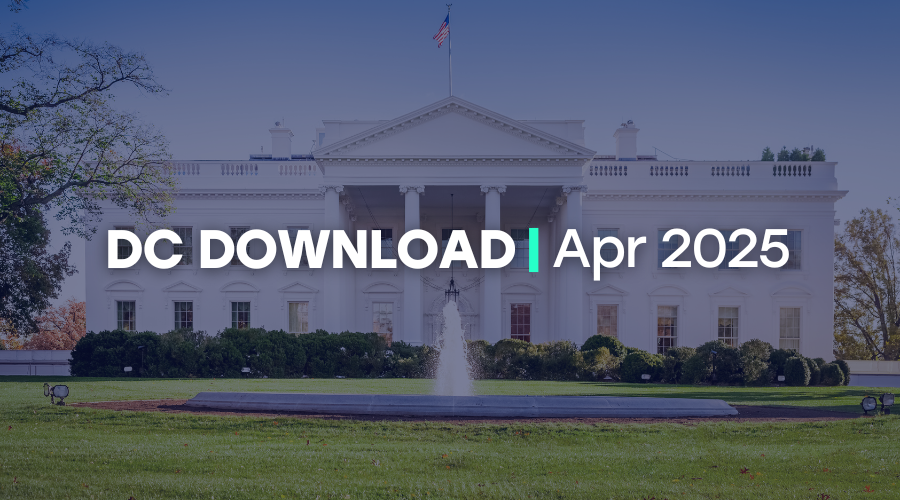Fewer than 12 nonprofit leaders are featured each year on “CNN Heroes.” Meanwhile, 12 million people work in nonprofits across America, largely unseen and unrecognized by our society, supporters, and government. We – in the nonprofit sector – labor under the difficult circumstances of urgent need, limited resources, and growing levels of trauma and burnout. We do so to serve people and make our communities healthier and stronger. You might say that nonprofit workers are the “essential workers” of civic life. But right now, we’re treated either as heroes or zeroes. We don’t just need public awareness of those 12 “heroes” – we need respect and dignity for our entire 12 million strong workforce.
Our federal, state, and local governments rely heavily on the nonprofit workforce to deliver public services, including large swaths of the social safety net, education, environmental stewardship, arts, and culture, and so much more. It costs our organizations a lot of money and time to secure these resources, and they are generally paid after the work is delivered and without much concern for living wages and the rising cost of living among the people doing the work.
Yet, nonprofits are still ineligible for longstanding loan programs offered by the Small Business Administration. National nonprofit groups had to fight to ensure that nonprofits were included in government pandemic relief, like the Paycheck Protection Program and the Employee Retention Tax Credit. And, recently, in New York City, the Human Service Council of New York worked on organizing social workers to rally in front of City Hall to convince Mayor Eric Adams and the City Council to fully fund cost-of-living adjustments for those nonprofits contracted by the municipal government to deliver services on its behalf.
For these reasons and more, Congress and The White House must lead in modeling how government can appropriately invest in the nonprofit workforce with an eye on racial equity, organizational effectiveness and impact, and long-term endurance. This can and must be done without disturbing the independence of the sector, the separation of church and state, or the freedom of assembly.
Past efforts have come and gone, and each was infused with the ideological agendas of presidents, such as The White House Office of Faith-based and Community Initiatives and The White House Office of Social Innovation. Both government and the social sector would benefit from permanent, stable, reliable, well-balanced representation of the nonprofit field in the federal government.
Thankfully, in April, the bipartisan duo of Representative Betty McCollum (MN-04) and Representative Fred Upton (MI-06) introduced H.R. 7587, known as the Nonprofit Sector Strength and Partnership Act of 2022. This was done with support and encouragement from Independent Sector, National Council of Nonprofits, Council on Foundations, United Philanthropy Forum, and over 500 local and national nonprofit endorsements, including the organization I lead, Fund the People.
The act seeks to strengthen the nonprofit sector, make the federal government a more productive partner with nonprofits, improve access to data about the sector, and raise awareness of the nonprofit sector throughout government. It would create a White House Office on Nonprofits. This office would connect with executive branch agencies through an interagency council of representatives from key agencies that work with nonprofits, and a diverse, paid advisory committee with leaders from the nonprofit sector.
There are three important elements of the act that would specifically increase federal investment in the nonprofit workforce:
- Paid Internships and Staff Professional Development: The proposed law includes language that would mandate a commission of experts to study how federal grants can enable and incentivize nonprofits to utilize government funds for relevant professional development to employees working on those grants, and ensure that interns working on government grants or contracts are paid, not unpaid.
- Fixing “Overhead” Ratios in Federal Funding: The bill calls for a review of federal statutes and regulations to identify inconsistent requirements and restrictions on payment of ‘‘administrative costs,’’ and consider the impact of inconsistent or conflicting rules on organizations seeking federal and state pass-through grants on their operations and sustainability. Such an effort to improve the “direct”/ “indirect” formula in federal funding streams could go a long way toward improving how government funding impacts compensation across nonprofit organizations.
- Data on Nonprofit Employment: The bill would create a centralized process for compiling and publishing existing federal data on nonprofits, including data on nonprofit employment and wages; federal funding of nonprofits; types of revenue; and data on volunteering and civic engagement. This would help policymakers, journalists, funders, and others to become more aware of the vast social and economic scope and scale of the nonprofit workforce.
Why is it important to have a high-level office like this, with approval by Congress, and representatives from The White House and executive branch agencies? Why is it important to have regular data on nonprofit employment?
Visibility.
We must be visible as part of America’s democratic system.
We must be visible as a workforce that contributes critical services to the public good – as well as contributing payroll taxes and consumer spending to the economy.
Visibility enables respect. It also enables policymakers, scholars, and funders to take our labor into account when shaping policy, research, and grantmaking/giving strategies.
We don’t need people in power to treat a dozen nonprofit leaders as “heroes.” But it’s not helpful to treat the other 12 million of us as “zeroes,” either. Instead, treat us all with the dignity and respect that our labor needs and deserves. This approach will not only make nonprofits stronger; it will make the nation stronger.
Learn more about the bill and get access resources.
Rusty Stahl is the president and CEO of Fund the People, an organization that seeks to maximize investment in the nonprofit workforce.



